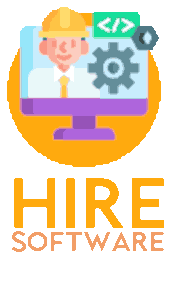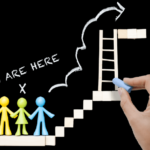As businesses expand globally, finding top talent becomes increasingly vital. Hiring software engineers for a global team can be an excellent way to boost productivity and ensure your company stays ahead of the curve. However, it’s crucial to manage the hiring process effectively to ensure a successful outcome.
Key Takeaways:
- Global software engineering teams offer many benefits for businesses
- Understand the specific needs of your global team before defining job roles and responsibilities
- Create compelling job descriptions that highlight the requirements and benefits of the role
- Screen candidates thoroughly for cultural fit and communication skills
- Establish clear communication channels and support for remote software engineers
- Foster collaboration and team building within your global software engineering team
Understanding the Needs of Your Global Team
When it comes to building a global software engineering team, it’s essential to understand the unique needs of your team. Factors such as language requirements, time zones, and cultural differences can greatly impact the success of your team.
To start, consider the primary languages spoken by your team members. Ensure that all communication and documentation are available in these languages to avoid miscommunication and ensure clarity. Additionally, take into account the differences in time zones and find ways to accommodate flexible schedules to ensure effective collaboration and productivity.
Addressing Cultural Differences
Cultural differences can also significantly impact your team’s success. Take the time to understand the cultural norms of each team member and aim to foster a respectful and inclusive environment for all. Consider implementing cross-cultural training and regular check-ins to promote understanding and collaboration.
In summary, understanding the specific needs and differences of your global team can greatly benefit your software engineering efforts. By accommodating language requirements, time zones, and cultural differences, you can create a productive and inclusive team culture.
Defining Job Roles and Responsibilities
When hiring software engineers for a global team, it is essential to clearly define job roles and responsibilities. This is important to ensure that each team member is aware of their specific tasks and what is expected of them. Defining roles also helps to prevent confusion and duplication of work, which can lead to delays and negatively impact team dynamics.
When defining job roles, it is important to consider the specific skills and qualifications required for each position. For example, a front-end developer will require a different skill set than a back-end developer. It is also important to consider the level of experience required for each role, as well as any certifications or specific software knowledge needed.
Another important factor to consider when defining job roles is the collaboration between team members. It is important to identify areas where collaboration is needed in order to ensure that each team member has a clear understanding of how their work will fit into the larger project.
Once job roles have been defined, it is important to clearly communicate them to the entire team. This can be done through a job description or a more formal document outlining responsibilities and expectations. It is essential that each team member has a clear understanding of their role and how it fits into the larger project.
Crafting an Effective Job Description

Creating a well-crafted job description is crucial to attract top talent for your global software engineering team. An effective job description should clearly and concisely communicate the requirements and benefits of the role.
Here are some key tips to consider:
1. Use clear and concise language
Avoid using technical jargon and acronyms that may be unfamiliar to candidates. Use simple and specific language to describe the skills and qualifications required for the role.
2. Highlight specific requirements and benefits
Be clear about the specific requirements for the role, such as language proficiency, technical skills, and experience. Also, emphasize the benefits of the job, such as opportunities for professional growth, remote work options, and competitive compensation.
3. Provide an accurate and detailed job summary
The job summary should accurately describe the main responsibilities of the role, including specific projects or tasks. It should also provide a brief overview of the company and the team the candidate would be working with.
4. Avoid discrimination language
Make sure the job description does not include any language that could be interpreted as discriminatory. For example, avoid including age, gender, race, or religion in the job posting.
5. Use inclusive language
Use inclusive language to appeal to a diverse pool of candidates. Avoid using gendered pronouns or words that may perpetuate stereotypes.
6. Provide clear instructions for applying
Include specific instructions on how to apply, including any required documents or materials. Also, provide a timeline for the hiring process and when candidates can expect to hear back.
7. Review and edit
Before posting the job description, review it for any errors or inconsistencies. Edit it to ensure it accurately reflects the job requirements and benefits.
Sourcing and Screening Candidates
When it comes to finding top talent for your global software engineering team, sourcing and screening candidates is a critical step.
Here are some strategies to consider:
- Utilize online platforms: Job sites such as LinkedIn, Glassdoor, and Indeed can be a great source for finding potential candidates. Make sure your job posting is optimized with relevant keywords to increase visibility.
- Network: Attend tech conferences or reach out to colleagues in the industry to see if they know of any qualified candidates. Referrals can often lead to great hires.
- Conduct technical interviews: Screening candidates for technical skills is essential for a software engineering position. Consider conducting video interviews to assess a candidate’s technical abilities.
- Assess cultural fit and communication skills: As previously mentioned, assessing cultural fit and communication skills is crucial for a global team. Consider conducting video interviews to evaluate a candidate’s language proficiency and adaptability to different cultures.
By implementing these strategies, you can increase your chances of finding the perfect candidate for your global software engineering team.
Assessing Cultural Fit and Communication Skills
When hiring software engineers for a global team, it’s important to assess their cultural fit and communication skills. This is especially crucial when working across different time zones and cultures.
Cultural fit: To assess cultural fit, consider the values and work culture of your team and company. Look for candidates who share these values and can adapt to your team’s way of working. During the interview process, ask questions that reveal their work style, personality, and how they handle conflict. You can also ask for references from previous employers to gain additional perspectives on their work style and adaptability.
Communication skills: Communication is vital for a successful global team. Be sure to assess a candidate’s language proficiency, both for spoken and written language, if it’s necessary for the role. Additionally, evaluate their ability to communicate effectively in a remote environment. Consider asking them to share examples of how they have communicated successfully in previous remote roles and how they have handled communication challenges.
To assess both cultural fit and communication skills, consider conducting video interviews with candidates. This will give you a better sense of their personality, communication style, and how they present themselves. You can also evaluate their ability to adapt to new situations and communicate with people from different cultural backgrounds.
Overall, assessing cultural fit and communication skills during the hiring process will improve the chances of success for your global software engineering team.
Onboarding and Integration
Once you have hired software engineers for your global team, it is essential to ensure a smooth onboarding process. This step is crucial to set the tone for their integration into the team and the company culture.
Here are some tips to make the onboarding process successful:
- Provide a clear overview of the company structure, including the global team they will be working with.
- Offer training and resources to familiarize them with the tools and technologies they will be using.
- Establish communication channels and protocols to ensure efficient collaboration.
- Assign a mentor or buddy to guide them in their first few weeks.
Integrating new team members into your global team requires effort and attention. To build a cohesive team, it is essential to establish open communication and collaboration between team members, regardless of their location or time zone.
One way to promote team integration is through regular virtual team-building activities. This can include virtual happy hours, team challenges, or even online games. Encouraging team members to share their experiences and cultural differences can also foster a sense of unity within the team.
Managing Remote Software Engineers
Managing software engineers in a remote environment can be a challenging task, especially when it involves a global team. However, with the right strategies and tools, you can effectively manage your remote software engineers and ensure successful collaboration. Here are some tips:
Establish Clear Communication Channels
Effective communication is crucial when managing a remote software engineering team. Ensure that your team has access to reliable communication channels such as email, messaging apps, and video conferencing tools. Encourage them to use these channels regularly to keep everyone up to date on project progress and encourage collaboration.
Provide Necessary Tools and Support
Remote software engineers require certain tools and support to be effective. Ensure that your team has access to the necessary hardware, software, and other tools to carry out their work effectively. Additionally, provide support in terms of training, mentorship, and resources to help them achieve their goals.
Establish Clear Goals
When working remotely, it can be easy to lose sight of the bigger picture. Therefore, it is essential to establish clear goals and objectives that your team can work towards. This will help to keep everyone focused and motivated, leading to better collaboration and productivity.
Develop a Positive Team Culture
Creating a positive team culture is essential when managing remote software engineers. Encourage your team to interact regularly with each other and promote a supportive and collaborative environment. Consider virtual team-building activities and regular check-ins to build morale and keep everyone engaged.
Monitor Progress and Offer Feedback
Regularly monitoring your team’s progress and offering feedback is crucial in a remote work environment. Set up regular check-ins and progress reviews to keep everyone on track, identify any challenges, and provide feedback. This will help your team to stay motivated and ensure that they are delivering high-quality work.
By implementing these strategies, you can effectively manage your remote software engineering team and achieve your goals. Remember that communication, support, and collaboration are key to success in a global team environment.
Nurturing Collaboration and Team Building
When working with a global team of software engineers, it’s important to prioritize collaboration and team building. Building a positive team culture can improve team productivity, job satisfaction and employee retention.
One effective way to nurture collaboration is to have regular check-ins with team members. Schedule virtual meetings to discuss progress, address concerns and create an open dialogue. These meetings can also help team members get to know each other better, building trust and camaraderie.
Virtual team-building activities can also help bring the team together. Consider holding online games or social activities to help build relationships and encourage team bonding. The key is to find activities that are accessible and enjoyable for all team members, regardless of location or time zone.
Encourage open communication and feedback. Solicit feedback regularly on what is working well and what can be improved. Take the time to listen to your team members and adjust your management style as needed.
Finally, be intentional about promoting a positive team culture. Celebrate team successes, acknowledge individual contributions and encourage a collaborative approach to problem-solving. Cultivating a supportive and positive team culture can go a long way in creating a cohesive and productive global software engineering team.
Conclusion

Overall, hiring software engineers for a global team requires careful planning and consideration. By understanding the specific needs of your team, defining job roles and responsibilities, crafting effective job descriptions, sourcing and screening candidates, assessing cultural fit and communication skills, onboarding and integrating new hires, managing remote workers, and nurturing collaboration and team building, you can ensure that your business thrives with top global talent.
Remember to keep an open mind and be adaptable to different cultures and working styles. Communicate clearly and regularly with your team, and provide the necessary tools and support to help them succeed. By following these strategies and tips, you can build a successful and diverse global software engineering team that leads to business success.
FAQs

Q: How can I hire software engineers for a global team?
A: Hiring software engineers for a global team requires a strategic approach. Consider the specific needs of your global team, clearly define job roles and responsibilities, craft an effective job description, source and screen candidates, assess cultural fit and communication skills, onboard and integrate new hires, manage remote software engineers, and nurture collaboration and team building.
Q: Why is it important to understand the needs of a global team?
A: Understanding the needs of a global team is crucial for successful software engineering collaboration. Factors such as language requirements, time zones, and cultural differences can significantly impact communication and workflow. By catering to these needs, you can ensure a productive and harmonious global team environment.
Q: How can I define job roles and responsibilities for software engineers in a global team?
A: Clearly defining job roles and responsibilities is essential to avoid confusion and ensure efficient workflow within a global team. Carefully outline the specific skills and qualifications required for each role, considering the unique challenges and requirements of working in a global context.
Q: What should I consider when crafting a job description for software engineers in a global team?
A: When creating a job description, be clear and concise, highlighting the specific requirements and benefits of the role. Emphasize the global nature of the team and the opportunities it presents. Use compelling language to attract top global talent that aligns with your company’s values and objectives.
Q: How can I source and screen candidates effectively for a global software engineering team?
A: Utilize online platforms, networking, and technical interviews to source and screen candidates for your global software engineering team. Consider the geographical diversity of your team, language proficiency, and technical expertise when evaluating potential candidates.
Q: What factors should I assess when evaluating cultural fit and communication skills?
A: Cultural fit and communication skills are crucial when hiring software engineers for a global team. Conduct video interviews to assess communication abilities, evaluate language proficiency, and consider adaptability to different cultural contexts. A good cultural fit fosters collaboration and team synergy.
Q: What should I keep in mind during the onboarding and integration process for software engineers?
A: Clear communication is key during the onboarding and integration process. Provide training materials and resources, facilitate team collaboration, and establish regular check-ins to ensure a smooth transition for software engineers joining your global team.
Q: How can I effectively manage remote software engineers in a global team?
A: To manage remote software engineers, establish clear goals, effective communication channels, and provide necessary tools and support. Regularly communicate expectations, offer feedback, and address any challenges or concerns promptly to maintain productivity and engagement.
Q: How can I nurture collaboration and team building in a global software engineering team?
A: Foster collaboration and team building by organizing virtual team-building activities, promoting regular check-ins, and encouraging a positive team culture. Facilitate knowledge sharing and encourage open communication to strengthen bonds and enhance productivity within your global team.
Q: In conclusion, what are the key takeaways for hiring software engineers for a global team?
A: Hiring software engineers for a global team requires understanding the specific needs of your team, defining job roles and responsibilities, crafting effective job descriptions, sourcing and screening candidates, assessing cultural fit and communication skills, onboarding and integrating new hires, managing remote software engineers, and nurturing collaboration and team building. By implementing these strategies, you can attract top global talent and ensure the success of your software engineering endeavors.







